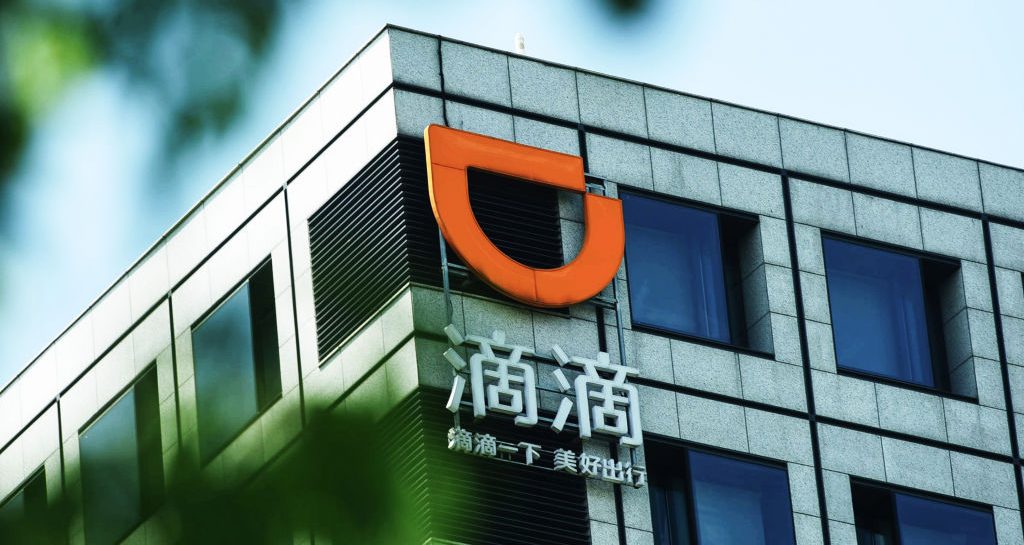Years ago, U.S. ride-hailing giant Uber and its Chinese rival Didi were locked in an expensive rivalry in the Asian nation. After a financially bruising competition, Uber sold its China-based business to Didi, focusing instead on other markets.
The two companies are coming head-to-head again, however, as Didi looks to list in the United States. The company’s IPO filing was big news for the SoftBank Vision Fund, Tencent and Uber, thanks to its stake in Didi from its earlier transaction.
But Didi appears set to be valued at a discount to Uber. By several tens of billions of dollars, it turns out. And we can’t quite figure out why.
This week, Didi indicated that it will target a $13 to $14 per-share IPO price, with each share on the U.S. markets worth one-fourth of a Class A share in the company. In more technical language, each ADR is 25% of a Class A ordinary share in Didi, if you prefer it put like that.
With 288 million shares to be sold in its U.S. IPO, Didi could raise as much as $4.03 billion, a huge sum.
What’s Didi worth at $13 to $14 per ADR? Using a nondiluted share count, Didi is valued between $62.3 billion and $67.1 billion. Inclusive of shares that may be issued thanks to vested options and the like, Didi could be worth as much as $70 billion; Renaissance Capital calculates the company’s midpoint valuation using a fully diluted share count at $67.5 billion.
Regardless of which number you prefer, Didi is not set to challenge Uber’s own valuation. Yahoo Finance pegged Uber at $95.2 billion as of this morning.
Why is the Chinese company worth less than its erstwhile rival? Let’s dig around in their numbers and find out.
Didi versus Uber
As a reminder, Uber’s Q1 2021 included adjusted revenues of $3.5 billion, a gain of 8% compared to the year-ago quarter. Uber’s adjusted EBITDA came in for the period at -$359 million.
In contrast, Didi landed RMB42.163 billion in Q1 2021 revenue, or $6.52 billion at recent exchange rates — the company calculates the figure at $6.4 billion using a slightly different exchange rate. Didi had net income of $835.6 million in the quarter, far superior to Uber’s inability to generate even adjusted profitability in its most recent quarter.
Didi also grew more rapidly in the first quarter than Uber did, expanding top line by more than 100% from a pandemic-impacted Q1 2020; recall that COVID-19 first hit the Chinese market, later spreading to more global lockdowns. So, to see a Chinese transit unicorn take a large hit in the first three months of 2020 is not a surprise. It also means we have to asterisk its Q1 2021 growth when measured on a year-over-year basis.
Why is Didi worth less, at least in terms of its current IPO price range, than Uber if it is larger and more profitable? Perhaps international concentration. Uber is more globally diversified than Didi, which generated a slim 2% of its revenues from international incomes. And Didi is more concentrated on its Chinese mobility business than Uber is focused on its own domestic ride-hailing effort.
Uber’s delivery business is huge and growing quickly. That could give investors hope for extensive future growth at the U.S. company. In contrast, here’s what Didi had to say about its “Other Initiatives” segment, regarding the first quarter of 2021:
Total segment revenues of our Other Initiatives segment increased by 180% from RMB0.8 billion for the three months ended March 31, 2020 to RMB2.1 billion (US$0.3 billion) for the three months ended March 31, 2021, primarily due to the growth of our bike and e-bike sharing services as well as the growth of revenues from new initiatives that we launched in 2020. The revenues of our bike and e-bike sharing services increased by 212% from RMB0.3 billion for the three months ended March 31, 2020 to RMB0.9 billion (US$0.1 billion) for the three months ended March 31, 2021.
Didi does have some food delivery efforts, but they are baked into its international revenue line item — and therefore nascent.
So, Uber is more diversified both geographically and in terms of its revenue mix. Didi is larger, more profitable and more concentrated. That may explain some of the differential — diversification can be a good thing. But consider the following revenue multiples for both companies at their Q1 2021 run rates:
- Uber: 6.8x Q1 2021 run rate (using its adjusted revenue figure to discount for single-quarter weirdness relating to the U.K. market).
- Didi: 2.7x Q1 2021 run rate (calculated using the largest valuation result we felt comfortable using).
That differential is tectonic; Uber’s revenue is valued at more than 2x what Didi’s is on a per-dollar basis.
The dynamic raises some interesting questions:
- Are investors more bullish about global growth than what the Chinese can muster?
- Are investors more concerned about competition in the Chinese mobility segment than in Uber’s more global market?
- Are we seeing Chinese companies trade at a discount to U.S. peers due to concern regarding an increasingly active and domineering government in the Asian nation?
You can add your own questions, of course, but there’s something afoot in the Didi deal that I can’t quite figure out. Why is it comparatively cheap? Perhaps we’ll learn more when it finally prices.
Despite flat growth, ride-hailing colossus Didi’s US IPO could reach $70B































Comment